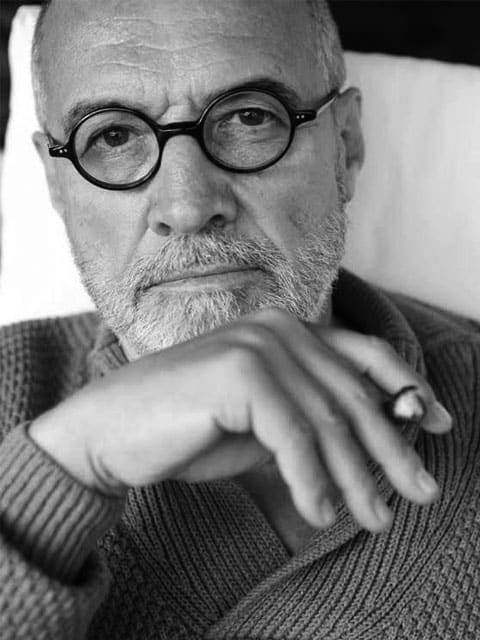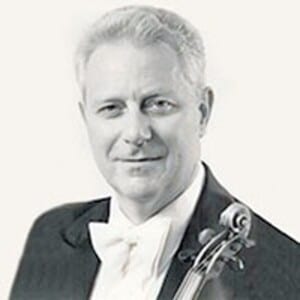Just in: An opera activist turns her back on the opera
mainElisabeth Kulman, the Austrian mezzo-soprano who campaigned against slave-wage conditions by which singers could rehearse for six weeks and not get paid a penny if they fell sick on premiere night, has announced her withdrawal from the opera stage.
She will focus on concerts and oratorios in future. Statement follows (mostly auf Deutsch).
Four years ago, Kulman suffered a devastating accident when she took a blow to the throat while rehearsing Tristan. She made a successful recovery and went on to found Art But Fair, a lobby group for fair play.
We wish her every success in the future.

Elisabeth Kulman hat sich entschlossen, ihre sängerische Tätigkeit in Zukunft auf das Konzertpodium – Liederabende, Konzerte, konzertante Opernaufführungen – zu verlegen, und hat daher szenische Opernpläne bei sämtlichen Veranstaltern zurückgelegt. Elisabeth Kulman blickt auf ihre Opernbühnenkarriere mit Freude und Dankbarkeit zurück, hofft, für ihre persönliche Entscheidung Verständnis zu finden, und freut sich auf viele künstlerische Begegnungen bei konzertanten Projekten.
Elisabeth Kulman has decided to focus her future singing activities on concerts, recitals and concertante operas. Therefore, she has withdrawn from all scenic opera projects that were scheduled at several international opera houses and festivals. Elisabeth gratefully and gladly looks back on her operatic career and hopes to find understanding for her personal decision. She very much looks forward to her next artistic projects and meetings.
So lautet die offizielle Pressemitteilung. Den Menschen, die mir am Herzen liegen oder denen ich am Herzen liege, möchte ich aber gerne noch einige Worte dazu sagen. Für sie sind die folgenden Zeilen bestimmt.
Ich habe die wahrscheinlich schwerste Entscheidung meines Lebens getroffen. Schwer vor allem deshalb, weil mir bewusst ist, dass ich damit viele Menschen vor den Kopf stoße: meine beiden Agenten und die Intendanten, die ich bitte, unterschriebene Verträge und Vereinbarungen für die nächsten Jahre aufzulösen; die Fans und Opernliebhaber, die mich auf der Bühne vielleicht vermissen werden; meine SängerkollegInnen, die möglicherweise das Gefühl haben, ich würde die Familie oder gar das sinkende Schiff verlassen. Ich muss gestehen, ich habe mir im Moment der Entscheidungsfindung verboten, mir über die Konsequenzen und die vermeintlichen Gefühle anderer Gedanken zu machen. Ansonsten hätte ich die Kraft und den Mut nicht aufgebracht, zu meinem Bauchgefühl zu stehen. Bauchgefühl, innere Stimme, Stimme des Herzens – wie immer man sie nennen will, die Intuition: Sie ist der untrügliche Wegweiser durchs eigene Leben, zum persönlichen Glück. Idealerweise in Kombination mit klugem Einsatz des Verstands. Für alle wichtigen Entscheidungen in meinem Leben bin ich meinem Herzen gefolgt und damit gut gefahren. In den letzten Monaten aber – seit meiner Bikwam also (für die, die meine Thailand-Berichte verfolgt haben) – habe ich erstens mich selbst besser kennen gelernt und zweitens ein noch stärkeres Bewusstsein für die wirkungsvolle Kraft der Intuition entwickelt. Du kannst deiner inneren Stimme zu hundert Prozent vertrauen! Das ist nicht schlecht. Sogar sehr viel! Oder alles – in einer Zeit, wo man kaum mehr weiß, welchem Trend man gerade folgen soll oder welcher Stimme man Glauben schenken soll. Mir scheint, wir alle, mich eingeschlossen, leben viel zu oft nach den (vermeintlichen) Erwartungen anderer, nach Regeln, die gar nicht zu uns passen, anstatt den Mut aufzubringen, unsere eigenen Träume auszusprechen und zu verwirklichen.
Was ist denn aber der handfeste Grund für so eine schwerwiegende Entscheidung, werden sich Ungeduldige fragen. Wie so oft gibt es nicht den einen Grund, sondern sind es mehrere Kleinigkeiten, die ich hier nicht alle aufzählen kann. Nein, sie haben das Fass nicht zum Überlaufen gebracht. Denn so weit wollte ich es eben nicht kommen lassen. Ich gehe mit tiefer Dankbarkeit und Freude, mit einem lachenden Auge und mit einem weinenden Auge (das kann und will ich nicht verhehlen), aber gemäß dem Sprichwort: Man soll aufhören, wenn’s am schönsten ist.
Das Opernbusiness ist ein riesiger Betrieb, der kreative Spielraum des einzelnen relativ klein. Als Künstlerin geht es mir aber gerade um die eigene Kreativität, den persönlichen Ausdruck, die Individualität. Ich habe für mich persönlich herausgefunden, dass ich mein kreatives Potential am besten zur Entfaltung bringen kann, wenn ich nach meinen eigenen Regeln arbeiten kann und mich nicht fremden Strukturen unterordnen muss. Deshalb ist das keine allgemeine Kritik am heutigen Opernbetrieb, sondern schlicht die Erkenntnis der Inkompatibiltät mit meiner Persönlichkeitsstruktur.
Auch ich bin traurig, ein Abschied schmerzt immer. Ich werde besonders die vielen Menschen hinter der Bühne, mit denen ich jahrelang wundervoll zusammenarbeiten durfte, vermissen. Zuneigungen und Freundschaften sind entstanden. Ich danke euch für eine unvergessliche Zeit und werde euch im Herzen behalten! Sängerkollegen, Musiker und Dirigenten hoffe ich nicht vermissen zu müssen, werden wir uns doch auf den Konzertbühnen wieder begegnen. “art but fair” ist im Opernbereich mit meinem Nachfolger Christian Sist und Emilio Pons bestens aufgestellt. Ich habe größtes Vertrauen, dass sie viel Positives bewegen werden, und werde beitragen, soweit ich kann.
Ich danke meinen Mitarbeitern, meinen beiden Agenten und meinen Freunden, die geschlossen hinter mir stehen und meine Entscheidung mittragen. Ich schätze mich glücklich, das beste Team der Welt zu haben.
Liebes Publikum, es gibt für Sie keinen Grund traurig zu sein. Meine Stimme wird weiter klingen für alle, die sie gerne hören wollen und Freude daran haben. Wir schlagen nur eine neue Richtung ein, ein spannender Weg liegt vor uns. Kommen Sie mit, wenn Sie genauso wie ich Lust haben, Neues zu entdecken! Ich freue mich sehr auf Sie und lade Sie sehr herzlich zu meinen nächsten Auftritten ein!
Elisabeth Kulman





Is is astounding that chorus members have higher pay and better job security than many of the soloists in opera houses.
This is ride right through the classical music business. Lots of scenarios where work you expect to come your way doesn’t happen or somehow you get replaced but are not recompensed. It seems to have always been the norm for musicians to be disposable labour.
Maybe the rest of the German text should be translated for clarity here; it seem from the previous comments that people are not understanding this case fully. While there are certainly many cases of singers whose careers do not shape up as expected, it is not so with Elisabeth Kulman. She is making the unusual decision to disengage from staged performance, while at the top of her career and very much in demand. She is in fact canceling years of future work, and choosing only to sing concerts. Kulman simply feels that her personality does not mesh with staged performance, and the fact that she is so in demand may allow her the luxury of this independence. The real question inherent in this story is: why do the circumstances of staged opera possibly drive away talented singers?
Having worked in opera, I agree wholeheartedly with the view that it is archaic for soloists in opera not to get paid for rehearsal periods. Everyone else in a House is paid. Why not the soloists who are as much, if not occasionally more, of a draw for the paying public? Of course there is a degree of risk that something will happen to a soloist and he/she will have to withdraw from performances. But nowadays how often does that happen for a full run of performances after rehearsals have started?
“why do the circumstances of staged opera possibly drive away talented singers?”
I suggest Ms. Kulman partly answers that question in her article when she says “creative freedom of the individual is relatively small.” That is the life for almost all professional opera singers. They can bring a great deal to a role, but it is the managers, conductors, directors, designers et al who make many of the key decisions on interpretation.
Kulman’s view is not new. Despite many offers, Dame Janet Baker refused to sing opera outside the UK partly for those very reasons (she did once sing Dido in a new production with Scottish Opera at Aix en Provence, but that was because she only needed to attend very few rehearsals in France).
Of the “managers, conductors, directors, designers et al” only the conductors might perhaps agree that opera is primarily a musical genre and only secondarily a form of theater. Yet even conductors are more often than not ready to bow to the realities of power in our modern theater business. I wonder whether the minor role music itself often plays in today’s opera productions might not have influenced Ms. Kulman’s decision. And good for her that she is in the position to decide freely.
Really hopeless having all this in German and possibly misinterpreting what is being said. Any chance someone can translate all this into English, or anything that goes on the site in a foreign language?
I too am a singer and was in Scottish Opera Chorus for a couple of years before leaving to do solo concert work. Today there is no chorus at all as they don’t have the money to pay them, so they use freelancers from all over the UK. It seems today that if you haven’t made it in opera, you haven’t made it at all! In Janet Baker’s day, she could choose like so many of them at the time, and not go wandering around the world for months on end away from home and in some cases, desperately lonely. She didn’t have to do much opera as she carved out a wonderful life as a concert singer who had a decent homelife too with Keith, her husband, so she chose what little opera she did.
Fully agree about the absurdity of NL sticking such long articles in German on this site. Ive noticed it’s always when they’re in German which NL spreaks fluently and not other European languages. Perhaps the odd paragraph, but a statement this long in a foreign laguage on an English-speaking site is utterly meaningless for most readers and can well lead to irrelevant and incorrect comments.
Slipped Disc is a free public service. Do you want to sponsor a staff translator?
Try cutting and pasting into google translate!
For those who may desire to read a translation of Elisabeth Kulman’s press release:
“So goes the official press release. To those people for whom I care, or who care for me, I would like to add a few more words. The following lines are intended for you.
I have reached, possibly, the most difficult decision of my life. Difficult, above all, because I am conscious that thereby I am snubbing many people: my two agents and theatre directors, who I request, to break off concluded contracts and agreements for the coming years; fans and opera lovers, who perhaps may miss me on stage; my singer colleagues, who possibly have the feeling that I would leave the family or even a sinking ship. I must admit that at the moment of making the decision I forbade myself to consider the consequences and supposed feelings of others. Otherwise I would not have been able to find the energy or the courage to stand by my gut feeling. Gut feeling, inner voice, voice of the heart – how ever one wishes to name it, intuition: it is the infallible guide through one’s own life to personal happiness. Ideally in combination with the clever use of common sense. In all the important decisions in my life I have followed my heart and thereby fared well. In recent months, however – since my Bikwam (for those who have followed my reports from Thailand) – I have firstly come to know myself better and secondly developed an even stronger conscience for the effective power of intuition. You can trust your inner voice one hundred percent! That’s not a bad thing. It is great deal! Or everything – in an age where one hardly knows which trend one should follow or to which voice one should give credence. It appears to me that we all, myself included, live too much according to the (supposed) expectations of others, according to rules which do not suit us, instead of mustering the courage to realise and express our own dreams.
The impatient will ask themselves what is then the well-founded reason for such a decision. As so often is the case, there is not one but rather numerous minor details, which I cannot recount here. No, they have not caused the barrel to overflow. I go with deep gratitude and joy, with mixed feelings and teary eyed (that I cannot and will not conceal), but according to the proverb: one should stop when it’s at its best.
The opera business is an enormous enterprise. The individual’s room to move is relatively small. As an artist what concerns me is individual creativity, personal expression, individuality. Personally, I have discovered for myself that I am best able to develop my creative potential when I am able to work according to my own rules and not have to subordinate myself to other structures. It is not, therefore, a general criticism of the current opera business but rather recognition of the incompatibility of my personality’s makeup.
I am also sad. Parting is always painful. I shall especially miss the many people behind the scenes with whom for many years I have been able to work wonderfully together. Affections and friendships have emerged. I thank you for the unforgettable time and will remember you in my heart. Singer colleagues, musicians and conductors I hope that I do not have to miss you and that we will still meet each other again on the concert platform. “art but fair” is in the field of opera through my successor, Christian Sist, and Emilio Pons very well placed. I have the greatest confidence that they will change much for the better and I will contribute as far as I can.
I thank my colleagues, both my agents and my friends, who united stand behind me and support my decision. I consider myself fortunate to have the best team in the world.
Dear audience, there is no reason for you to be sad. My voice will continue to sound for all those who want to hear and derive pleasure from it. We are simply following a new direction. An exciting path lies before us. Come along, if you have desire, like me, to discover something new. I look forward very much to seeing you and most cordially invite you to my next appearances.”
I trust I have done Elisabeth Kulman’s original words justice.
thanks, Martin!
You did her words justice!
… [Trackback]
[…] Read More Infos here: slippedisc.com/2015/04/just-in-an-opera-activist-turns-her-back-on-the-opera/ […]